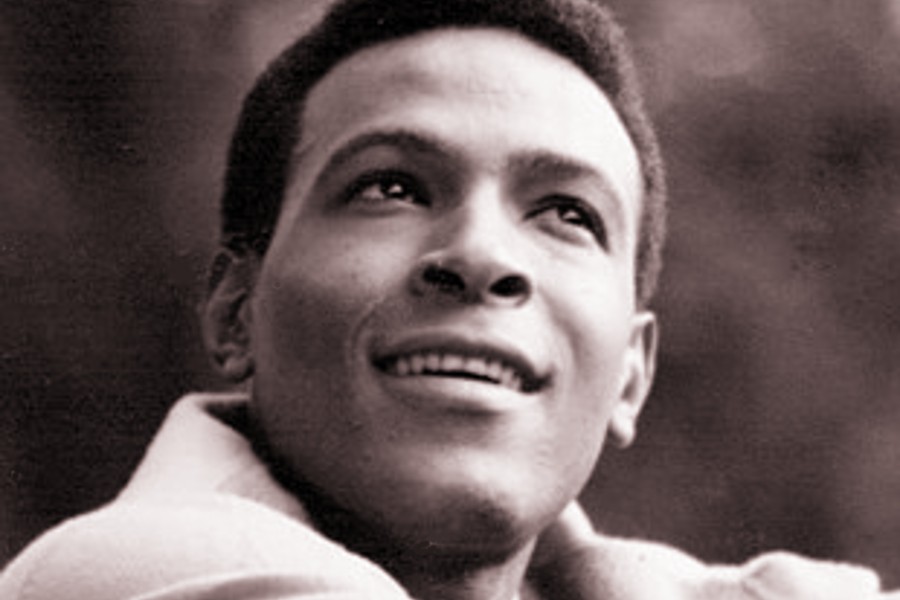 Vito Anthony Marcantonio, December 10, 1902 – August 9, 1954, was an Italian-American lawyer and communist politician. Originally a member of the Republican Party and a supporter of Fiorello LaGuardia, he switched to the American Labor Party. Later in his life, excepting his position on Japanese in America, Marcantonio grew to seem more of the far left of the American political spectrum, and was nationally known for his support from Communists in the 1940s.
Vito Anthony Marcantonio, December 10, 1902 – August 9, 1954, was an Italian-American lawyer and communist politician. Originally a member of the Republican Party and a supporter of Fiorello LaGuardia, he switched to the American Labor Party. Later in his life, excepting his position on Japanese in America, Marcantonio grew to seem more of the far left of the American political spectrum, and was nationally known for his support from Communists in the 1940s.
Representing East Harlem, New York City, which had many ethnic Italians and Puerto Ricans, Marcantonio was extremely popular. He spoke Spanish, Italian, and English. He was elected to numerous terms in the House of Representatives from the 1930s until his defeat in the 1950 election.
An Italian American, the son of an American-born father with origins in the region of present-day Basilicata and an Italian-born mother, Marcantonio was born in the impoverished Italian Harlem ghetto of East Harlem, New York City. He attended New York City public schools (including De Witt Clinton High School in Hell’s Kitchen) and eventually received his LL.B. from the New York University School of Law in 1925.
After passing the New York bar examination in 1926, Marcatonio began practicing law. He clerked at the law firm of Hale, Nelles & Shorr, known for its representation of radical individuals and organizations. There, he worked with labor lawyer Joseph Brodsky, who “significantly contributed to his left orientation” toward Marxism.
In 1924, he became campaign manager for the congressional campaign of Fiorello La Guardia, then a Progressive-Socialist. Together, LaGuardia and Marcantonio also campaigned for U.S. Senator Robert M. La Follette for U.S. President.
From 1930 to 1931, he worked as an assistant United States attorney.
Marcantonio was first elected to the United States House of Representatives from New York in 1934 as a Republican. He served in the House from 1935 until 1937, but was defeated in 1936 for re-election.
Marcantonio‘s district was centered in his native East Harlem, New York City, which had many residents and immigrants of Italian and Puerto Rican origin. Fluent in Spanish as well as Italian, he was considered an ally of the Puerto Rican and Italian-American communities, and an advocate for the rights of the workers, immigrants, and the poor. In 1939 in Congress, he criticized the 1936 trial in which Pedro Albizu Campos, president of the Puerto Rican Nationalist Party, and some supporters had been convicted of sedition and other crimes against the United States. In addition to defending the Puerto Rican and Italian communities and common workers, Marcantonio was a strong advocate of Harlem’s African American communities and fought vehemently for black civil rights decades before the civil rights movement of the 1950s-60s.
In either 1937 or 1938, Marcantonio became a member of the American Labor Party. He was elected to the House again from New York in 1938, and served this time for six terms, from 1939 to 1951, being reelected in the elections of 1940, 1942, 1944, 1946, and 1948. He was so popular in that district that he sometimes won the Democratic and Republican primaries, as well as the American Labor Party endorsement. Aside from Marcantonio, the only American Laborite congressman was Leo Isacson, who served in Congress from 1948 to 1949, after winning a special election. He was defeated in the next general election.
In 1949 Marcantonio ran for mayor of New York City on the American Labor Party ticket, but was defeated. In 1950 he was defeated by the Democrat James Donovan for his House seat, after a particularly vociferous campaign against the congressman because of his refusal to vote for American participation in the Korean War. In that election, Donovan had the broad-based popular support of the Democratic, Republican, and Liberal parties. The passage of the Wilson Pakula Act in 1947 also played some part in Marcantonio‘s defeat. The law prevented candidates from running in the primaries of parties with which they were not affiliated. It was widely perceived as being directed against Marcantonio.
In 1948, Marcantonio was an avid supporter of former Vice President Henry A. Wallace, who ran for President on the Progressive Party ticket.
Marcantonio, who was arguably one of the most left wing members of Congress, said that party loyalty was less important than voting with his conscience (he was usually the only member of his party elected to office). He was sympathetic to the Socialist and Communist parties, and to labor unions. He was investigated by the FBI because of his alleged sympathy with communism and ties to the Communist Party.
“one of the greatest champions of black civil rights during the 1930s and 1940s.”
In 2010, historian Thaddeus Russell described Marcantonio as “one of the greatest champions of black civil rights during the 1930s and 1940s.” He sponsored bills to prohibit the poll tax, used by southern states to disenfranchise poor voters, and to make lynching a federal crime.
His opposition to racism, however, did not extend to people of Japanese descent. In 1942 he supported the forced evacuation and incarceration of Japanese in America saying Pearl Harbor was made possible by the “Japanese fifth column.”
In 1940, Marcantonio helped form the American Peace Mobilization (AMP), a group whose aim was to keep the U.S. from participating in World War II (thus similar in aim to the rightist America First Committee). Before the Molotov–Ribbentrop Pact (a Nazi-Soviet non-aggression pact) was signed in Moscow 23 August 1939, the AMP’s precursor organization, the Comintern-directed American League Against War and Fascism, had been anti-Nazi. Marcantonio served as the AMP’s vice-chair. He appeared in a newsreel in 1940 denouncing ‘the imperialist war’, the line taken by Joseph Stalin and his supporters in the Soviet Union until the invasion of the Soviet Union by Nazi Germany. The Pact lasted until the Germans broke it by invading the Soviet Union on 22 June 1941. In 1942 Marcantonio worked to expand the U.S. military commitment to a second front in Europe against the Nazi expansion. The USSR ordered Communists throughout the world to promote the idea to help it defeat Nazism. Marcantonio was also a Vice President of the International Workers Order, a fraternal benefit society unofficially affiliated with the Communist Party.
In 1941, Marcantonio represented Dale Zysman, a high school coach and board member of the New York Teachers Union a/k/a Jack Hardy, a communist writer for International Publishers, in a New York Board of Education hearing. Marcantonio asked for a ten-day stay because the Board had failed to present “an itemized bill of particulars,” which stay the Board denied. Zysman walked out.
As the sole representative of his party for most of his years in Congress, Marcantonio never held a committee chairmanship. After his defeat in 1950 and the withdrawal of Communist Party support for the ALP, the party soon fell apart.
In 1950, Marcantonio opposed American involvement in the Korean War. He argued that North Korea had been the victim of an unprovoked attack by South Korea. He cited articles by I. F. Stone, a radical journalist.
After his defeat in mayoral and congressional elections, Marcantonio continued to practice law. It was his law practice, maintained while in Congress, that had generated the money by which he substantially self-financed his political campaigns.
At first he practiced in Washington, D.C. but he soon returned to New York City. At the time of his death in 1954, Marcantonio was running for Congress as the candidate of a newly formed third party, the Good Neighbor Party. He died on August 9, 1954, from a heart attack after coming up the subway stairs on Broadway by City Hall Park in Lower Manhattan.
Marcantonio‘s collection of speeches, I Vote My Conscience (1956), edited by Annette Rubenstein, influenced the next generation of young radicals. His defense of workers rights, his mastery of parliamentary procedure, his ability to relate to the workers in his district while also engaging in worldwide issues, made him a hero to a certain section of the left. Rubenstein’s book was reprinted in a new edition in 2002.
Tony Kushner’s play, The Intelligent Homosexual’s Guide to Capitalism and Socialism with a Key to the Scriptures, has a main character who is a fictional “cousin” of Vito Marcantonio. The play premiered in Minneapolis in 2009 and had a brief run off Broadway in New York in 2011. Another highly praised run of the play took place at the Berkeley Repertory Co. theater in Berkeley, CA in 2014.
Here’s the Vito Marcantonio : A Synopsis video:
Become a Harlem Insider!
By submitting this form, you are consenting to receive marketing emails from: Harlem World Magazine, 2521 1/2 west 42nd street, Los Angeles, CA, 90008, https://www.harlemworldmagazine.com. You can revoke your consent to receive emails at any time by using the SafeUnsubscribe® link, found at the bottom of every email. Emails are serviced by Constant Contact











